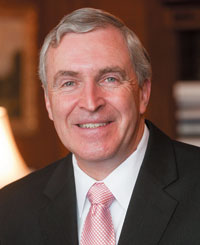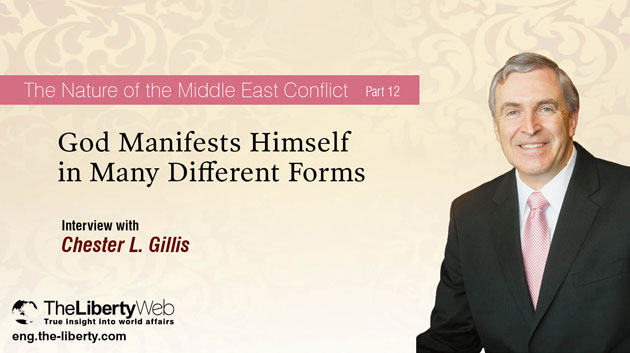God Has Manifested Himself in Many Different Ways
Professor Chester L. Gillis, Georgetown University

Chester L. Gillis
Profile:
Ph.D. from Chicago University.Current Dean of Georgetown College and Professor of Theology. Author of “Pluralism: A New Paradigm for Theology” (1993) and “Roman Catholicism in America” (2003). Has given his thoughts through various media outlets including television appearances.
Q: What piqued your interest in religious pluralism? Also, what is the merit of such an approach to religion?
A: Back in the 1970’s, I read a book by John Hick called “God and the Universe of Faiths”. This book suggested that there is a single Transcendent that reveals itself in kind in different periods and in different places.
Religious Pluralism can Relieve Some of the Barriers Between Faiths
I am a Christian theologian, so I rejected his views at first. But the more I read, and the more I thought, and the more people I met from other religions, and the more I read and understood other religions, the more I thought, “this is a more appropriate way to think about the Divine,” than a single lens that I had had as a theologian.
The benefit of the pluralistic approach, is that it’s not from a singular religious perspective, but it is from the perspective of the divine or the transcendent, which in my view as a theologian touches all of humanity, but touches humanity differently. And when it touches humanity, or reveals itself to humanity, it’s interpreted in different ways that sometimes become codified as, this is the only way to think about the Divine, when there are, in my view, various ways to think about the same Divine. If you do that, it relieves some of the barriers, at least theologically, although there are still social and cultural barriers between religions. Will this thought be subject to some criticism? Yes it will be, but I’m fine with that. If I think it’s correct, I’m not going to back down.
Each Religion had their Particular Revelation from God
Q: How do you Approach Those who Hold an Extremist or a Fundamentalist view?
A: The problem is often fundamentalism in any religion. Fundamentalists are often absolutists, and often want to impose their views on everyone else. I’m not sure that pluralism can solve that issue because sometimes fundamentalists don’t want to listen to any other view, and they don’t want to entertain another way of thinking. I think that fundamentalism needs to be revisited with a more rational approach, and a more global approach, to understanding one’s view and the world and one’s religion.
I think that every religion thinks that they are the “Chosen People”. They have had a particular revelation from God, and I think that that’s probably true that they have. It’s only when they are in conversation with the other, who have also had a revelation, that we can come to understand differently, a broader view, of God between us.
For example, there’s a tragedy, a plane crash, and the headline will say in the newspaper, “Three hundred people killed in plane crash, ten Americans”. In other words, the lens through which we see this is our own. So in a way the only one who counts who died are the Americans.
It’s the provincialism that religion and culture and society and politics tend to support. It’s the natural inclination to think about one’s own, but I’m thinking about the 300 people totally, not just the 10 from your own community.
Human Rights Should be Universal
Q: How can Values like Human Rights or Freedom be Spread to Regions Those Values are Lacking?
I believe in human rights and I think that should be universal. Human atrocities, for example, genocide, I don’t think should be permitted anywhere. But the various religions have had a very hard time coming to an agreement on what are the innate, universal, human rights. Hans Kung, a very famous Swiss theologian, for many, many years – decades – has been trying to get an agreement among all the religions on some basic, fundamental principles to guide societies and cultures, ethical principles. But not everyone is signing on. It’s hard to find jurisdictions that will oversee universal rights, or courts that will oversee that when there are different theoretical systems. But it’s not one we should abandon. I think that human rights should be propagated globally.
Q: How can Pluralism be Spread?
Religious pluralism certainly has its own limitations. There will be those who think it’s a transcendental agnosticism; that no one can really know the Divine because the Divine is the “Hidden Other”.
But I think people should be introduced to the idea of Pluralism. When you absolutize religion that can become problematic. It can even not help us to get to God.
It would be great if we can foster inter-religious dialogue in the Middle East. It’s difficult, but important. I’ll continue to participate in many dialogues, and to write, to try to spread the idea of Pluralism.



















